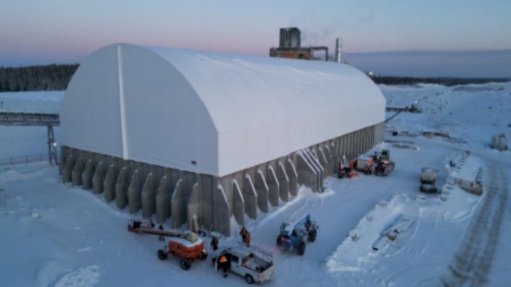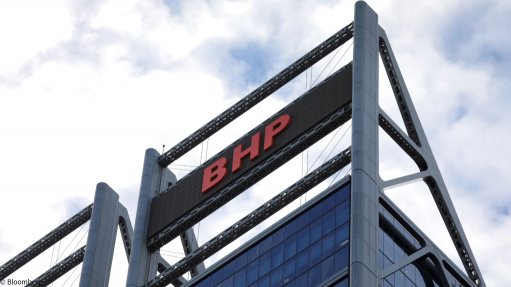STEINERT, Ferbasa lead the way in sensor-based sorting

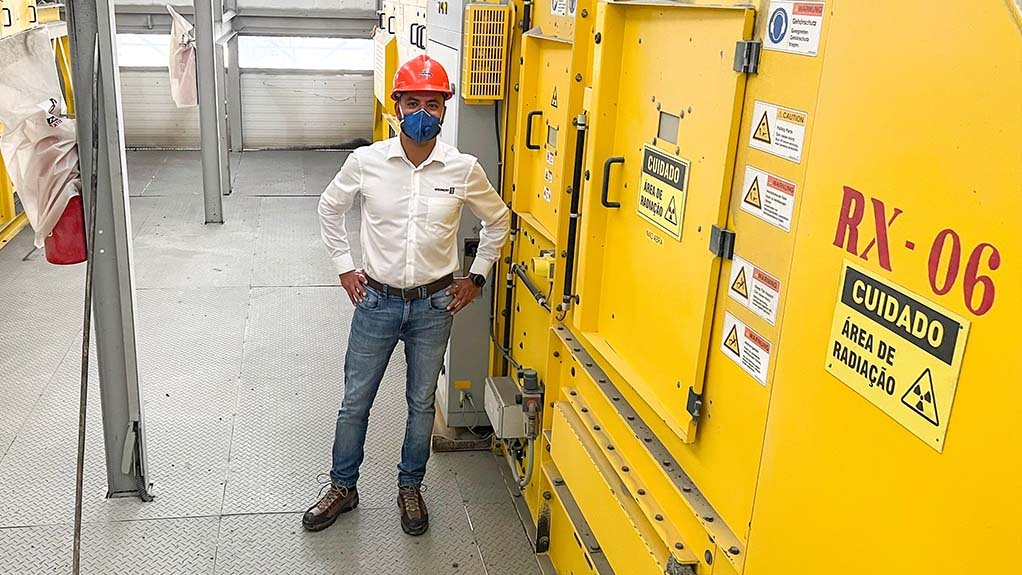
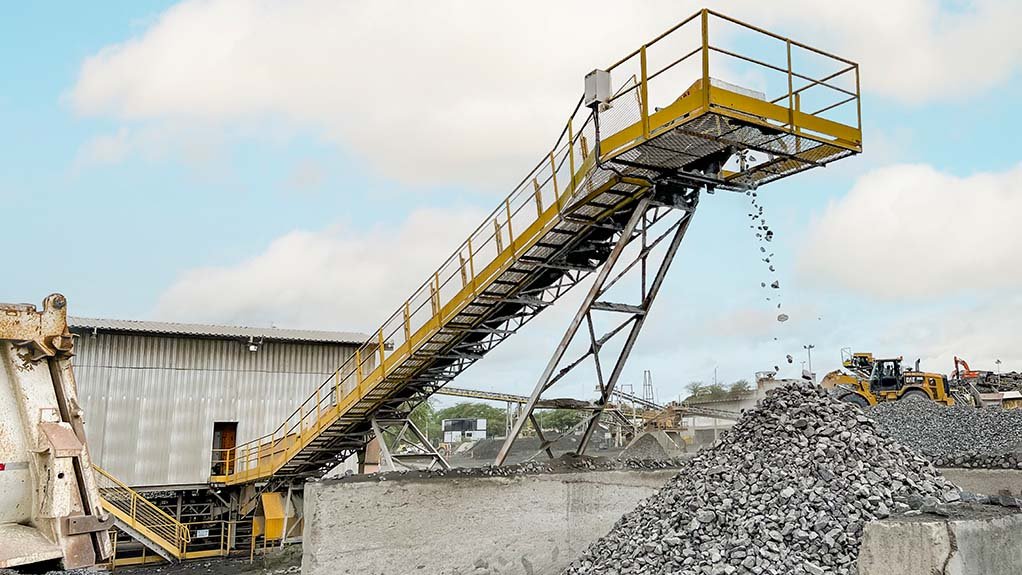
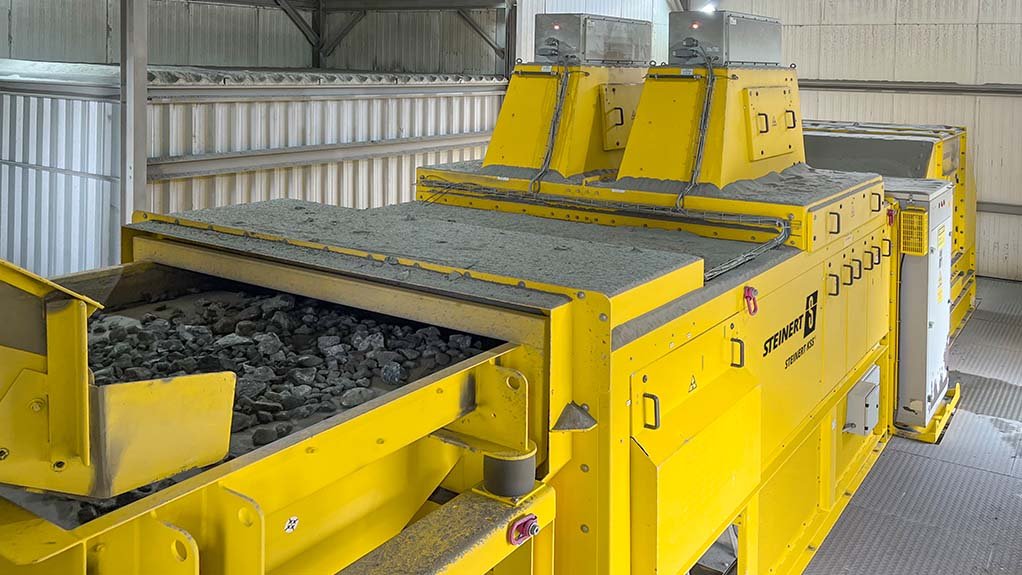
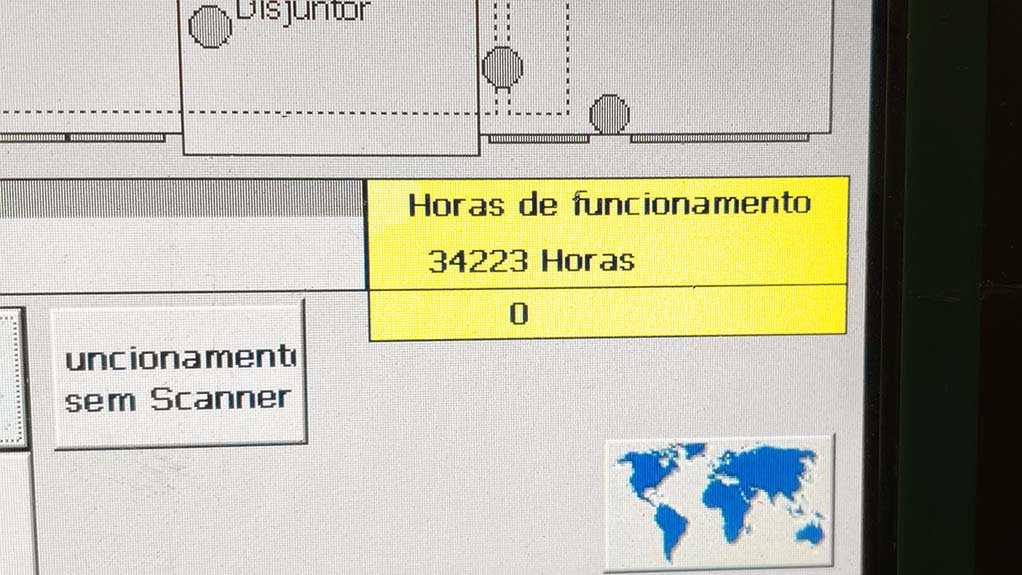
“From one to six sensor-based sorting systems in just five years proves how beneficial the operation is for the customer,” says Vinícius Souto, Managing Director at STEINERT Latinoamericana.
The chromium extracted from chromite is used in alloys for the production of corrosion-resistant superalloys, nichrome, stainless steel, and chrome plating.
STEINERT KSS sorting system applies this concept, combining the X-ray transmission sensor with three other additional sensor options (induction, 3D laser, and colour).
The first STEINERT XRT sorting system is still in operation – with 34,000 hours of runtime.
The Companhia de Ferro Ligas da Bahia (Ferbasa) is located in Ipueira, a municipality in the state of Bahia in the northeast of Brazil. Ferbasa operates one of the largest chromite mines in Brazil and is considered a pioneer in the use of sensor-based sorting (SBS) technology. The company processes chromite obtained from an underground mine. The extracted material is pre-concentrated using sorting technology that employs sensors, and is later used in the production of specialized steel alloys. With a processing capacity of 12,000,000 tonnes per year, the company has been using sensor-based sorting for 10 years, in a completely dry process that separates waste from high-grade chromite.
Eriberto Nascimento Leite, Mining Director at Ferbasa, is a firm believer in this “new” technology, which is actually not new at all. The technology is already familiar to those who have had X-rays or travelled through airport security. However, this is a technology that was completely new to the mining sector 10 years ago. Eriberto explains that SBS technology makes all the difference for Ferbasa; it allows the company to avoid unnecessary processing by separating a fraction of the high-grade material from the metallurgical process feed in advance.
The benefit of this, is removing the requirement for any additional processing. In that way, particles which are not economically viable are eliminated from the process beforehand. This process is referred to as pre-concentration. The pre-concentration of the material precedes comminution processes, which involve high energy consumption. Thus, only valuable material undergoes this process and moves on to the concentration steps.
Beneficiation refers to various methods or processes that aim to increase the concentration of specific minerals through physical and chemical methods. Simply put, pre-concentration improves the overall productivity of a minerals processing plant. At Ferbasa, the use of SBS technology has enabled an increase in production, in addition to reducing costs in the subsequent processes, such as comminution and the use of inputs, such as reagents.
Environmental, Social, and Corporate Governance (ESG) and sensor-based sorting go hand in hand
“Today, at Ferbasa, SBS technology helps us adopt ESG practices, reducing waste, maximizing production efficiency and contributing to the conservation of natural resources”, explains Eriberto Nascimento. Nowadays, it is not only the mined ore that is processed, but also the stockpiles, which contain considerable amounts of chromium. The treatment of these piles is only possible thanks to process automation and its high-capacity levels, which reach up to 180 t/h. Stockpile treatment has the potential to increase productivity in the mine. In terms of resource use, there is potential to reduce the consumption of water, energy, and chemical reagents primarily because SBS is a dry separation process, unlike other pre-concentration processes such as dense media separation (DMS).
How it all started: from curiosity to reality
Ferbasa has always used a pre-concentration process with the aim of separating lump ore, which has a high chromite content, from the low-grade ore that goes to the concentration plant. However, this used to be a manual separation process. Bartolomeu Fonseca, the former processing manager at Ferbasa, discovered an article about SBS technology from STEINERT. In 2012, he prepared material to be sent for tests at STEINERT’s Test and Development center in Germany, and these were successful.
The first sorting system, STEINERT XRT, is still in operation – with 34,000 hours of runtime
Ten years ago, when the first equipment was being installed, Ferbasa’s employees were sceptical about its capacity to support the adverse conditions in the mine. This is why STEINERT Latinoamericana, a subsidiary of STEINERT GmbH in Germany, offered a “try and buy agreement”. Over the years, the equipment’s high level of durability has been verified, resulting in the first unit still being in operation today, with a total of 34,000 hours of runtime. “Looking back, it was not easy to apply the technology, but I decided to move forward because I believed that the technology could be effective. Now, already retired, I am very proud of the legacy that I have left to the company”, says Bartolomeu Fonseca. “I had the full support from the mining director at that time, Wanderley Lins, but it was my responsibility to make it work.”
Strong support from STEINERT Latinoamericana with its own test center
In 2014, during the commissioning of the first sorting system, STEINERT XSS-T, many obstacles were faced – as is common with innovation projects. However, as STEINERT GmbH had already established its Latinoamericana subsidiary in Belo Horizonte and employed service technicians to help with installation, STEINERT Latinoamericana started a partnership with Ferbasa. STEINERT’s partnership with other companies has been paramount for the development of new solutions and technologies, contributing to the evolution of the industry and conservation of the environment. In addition, the company has been investing in research and development to continue to offer increasingly efficient and sustainable solutions.
The company currently has a team of 30 collaborators who serve several mining clients in Latin America, in addition to having a test center near the office in Brazil, enabling tests to be carried out with more convenience and efficiency for local clients.
From one to six sensor-based sorting systems in just five years
Ferbasa started operating the first equipment in 2014. By 2019, it already had six units installed for the processing of run-of-mine (RoM) and low-grade stockpiles. The production benefits from flexibility of the sorting systems, which generate waste material, pre-enriched material, and high-grade material. The processing capacities are up to 120 t/h for particles of 1 to 3 inches, reaching up to 180 t/h for particles from 2 to 5 inches. In terms of the sizes processed, the combination of sensors facilitates the separation of particles up to 5 inches; an exceptional feature that reinforces the robustness and efficiency of the equipment for the detection and ejection of extremely coarse particles. In total, recoveries reach values of up to 90%, with upgrades of up to 1,5-3 times the feed levels.
Currently, Ferbasa applies SBS technology to process 100% of their ROM, using two units from STEINERT, the STEINERT XSS T and STEINERT KSS | XT L, in a two-step process. In the first step, waste material is rejected, and in the second, pre-enriched and high-grade materials are generated. The high grade material meets the content specifications to be sent to the metallurgic plant, while the pre-enriched material is sent to another plant to follow other concentration procedures. Furthermore, the technology is applied in the processing of low-grade stockpiles, using two STEINERT KSS | XT L units in two steps to separate waste, pre-enriched material, and high-grade material. As a result, the low-grade stockpiles are processed in an economically viable way and with high sustainability gains.
About the technology
STEINERT has developed a unique sensor combination concept called “multi-sensor sorting” or STEINERT KSS. The STEINERT KSS sorting system applies this concept, combining the X-ray transmission sensor with three other additional sensor options (induction, 3D laser, and colour).
Please see here also the video to this project: https://youtu.be/pFdyJc322vM
About STEINERT Latinoamericana Ltd.
STEINERT Latinoamericana is a 100% subsidiary of STEINERT GmbH, located in Pedro Leopoldo, Minas Gerais, Brazil. It currently offers a highly qualified team, test laboratory, and
technical support to satisfy the demands of the whole of Latin America. In addition, STEINERT’s equipment successfully operates in several regions, including Brazil, Peru, and Chile.
Comments
Press Office
Announcements
What's On
Subscribe to improve your user experience...
Option 1 (equivalent of R125 a month):
Receive a weekly copy of Creamer Media's Engineering News & Mining Weekly magazine
(print copy for those in South Africa and e-magazine for those outside of South Africa)
Receive daily email newsletters
Access to full search results
Access archive of magazine back copies
Access to Projects in Progress
Access to ONE Research Report of your choice in PDF format
Option 2 (equivalent of R375 a month):
All benefits from Option 1
PLUS
Access to Creamer Media's Research Channel Africa for ALL Research Reports, in PDF format, on various industrial and mining sectors
including Electricity; Water; Energy Transition; Hydrogen; Roads, Rail and Ports; Coal; Gold; Platinum; Battery Metals; etc.
Already a subscriber?
Forgotten your password?
Receive weekly copy of Creamer Media's Engineering News & Mining Weekly magazine (print copy for those in South Africa and e-magazine for those outside of South Africa)
➕
Recieve daily email newsletters
➕
Access to full search results
➕
Access archive of magazine back copies
➕
Access to Projects in Progress
➕
Access to ONE Research Report of your choice in PDF format
RESEARCH CHANNEL AFRICA
R4500 (equivalent of R375 a month)
SUBSCRIBEAll benefits from Option 1
➕
Access to Creamer Media's Research Channel Africa for ALL Research Reports on various industrial and mining sectors, in PDF format, including on:
Electricity
➕
Water
➕
Energy Transition
➕
Hydrogen
➕
Roads, Rail and Ports
➕
Coal
➕
Gold
➕
Platinum
➕
Battery Metals
➕
etc.
Receive all benefits from Option 1 or Option 2 delivered to numerous people at your company
➕
Multiple User names and Passwords for simultaneous log-ins
➕
Intranet integration access to all in your organisation














